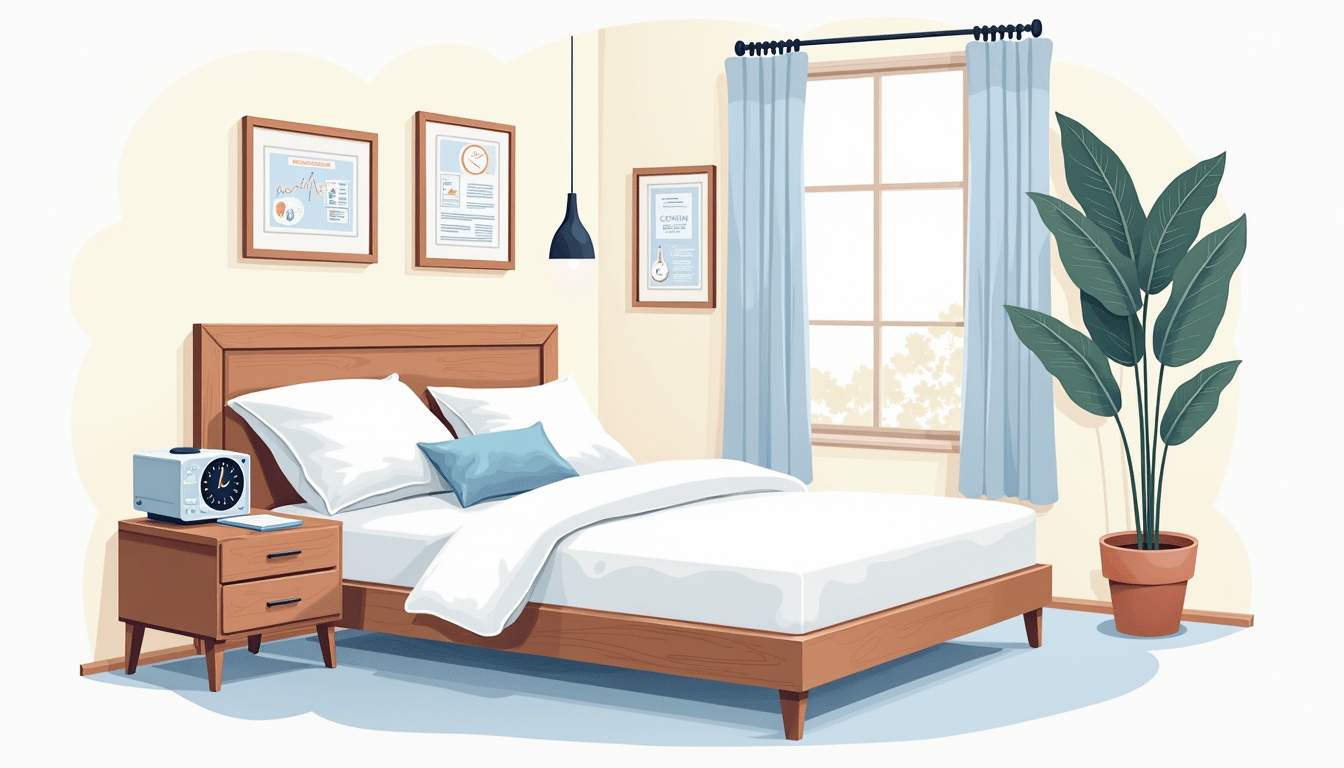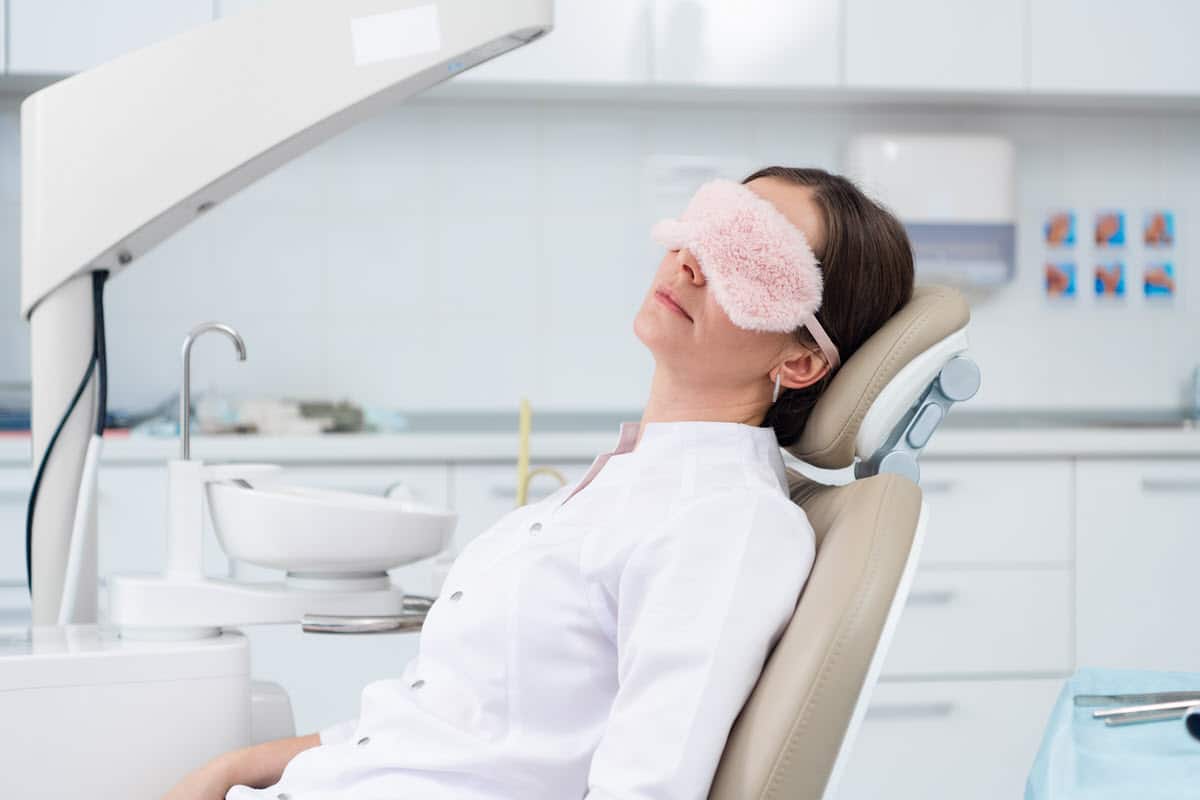Sleep is essential for our overall well-being, yet many of us struggle with it without fully understanding the reasons behind our challenges. If you’re in Brisbane and considering a sleep test, this guide will walk you through everything you need to know, including the importance of sleep tests, the different types available, and what to expect throughout the process.
Understanding the Importance of Sleep Tests
Understanding the significance of sleep tests can empower you to make informed decisions about your health. Sleep tests are essential tools in diagnosing various sleep disorders that can greatly affect your daily life.
In conclusion, booking a sleep test Brisbane doesn’t have to be an overwhelming experience. By familiarizing yourself with the process, the different types of tests available, and the importance of sleep, you can approach your appointment with confidence, knowing you are taking a significant step toward better health.

The Role of Sleep in Overall Health
Quality sleep is critical for multiple aspects of physical and mental health. It contributes to memory consolidation, emotional regulation, and immune function. Conversely, poor sleep can lead to serious health risks, including obesity, heart disease, and diabetes.
Moreover, chronic sleep deprivation is linked to various mental health issues, including anxiety and depression. A sleep test can identify underlying issues, assisting healthcare providers in tailoring the right treatment for you.
In addition to these health concerns, sleep plays a vital role in cognitive performance and productivity. Research has shown that individuals who get adequate sleep tend to perform better at work and school, showcasing improved focus, problem-solving skills, and creativity. Sleep is not merely a passive state; it is an active period of restoration that prepares the body and mind for the challenges of the day ahead.
Identifying Sleep Disorders
Sleep disorders, whether they manifest as insomnia, sleep apnea, or restless leg syndrome, often go undiagnosed. Symptoms like excessive daytime drowsiness or loud snoring can be signs that deeper issues exist, and a sleep test can help identify these disorders effectively.
By pinpointing the specific nature of your sleep issues, you can take the first step toward recovery and enjoy a more restorative sleep cycle. Furthermore, understanding the nuances of your sleep patterns can also lead to better lifestyle choices. For instance, knowing that you have sleep apnea might encourage you to adopt healthier habits, such as weight management or quitting smoking, which can significantly improve your quality of sleep and overall well-being. Find more about smoking on https://pubmed.ncbi.nlm.nih.gov/20550508/
Additionally, sleep tests can provide valuable insights into your circadian rhythms, helping to fine-tune your sleep schedule. This understanding can empower you to create an environment conducive to sleep, such as optimizing your bedroom for comfort and minimizing exposure to screens before bedtime, ultimately leading to a more balanced and fulfilling life.
Different Types of Sleep Tests
There’s no one-size-fits-all solution when it comes to sleep tests. Depending on your symptoms and healthcare provider’s recommendations, you may undergo different types of tests.
Polysomnography: An In-depth Look
Polysomnography is the gold standard for sleep studies, conducted in a clinical setting. This overnight test records brain waves, blood oxygen levels, heart rate, and respiratory functions, providing a comprehensive overview of your sleep patterns.
During this test, you’ll be monitored throughout the night, allowing the sleep technician to assess your restfulness and any interruptions that occur. This data is pivotal in diagnosing conditions like sleep apnea, narcolepsy, and REM sleep behavior disorder. The setup involves attaching various sensors to your scalp, face, chest, and limbs, which might feel a bit cumbersome at first, but they are essential for capturing accurate information. The environment is designed to mimic a home setting as much as possible, ensuring that the results reflect your natural sleep behavior.
In addition to the physiological measurements, polysomnography can also include video monitoring to observe your movements during sleep. This can help identify issues such as periodic limb movement disorder or other sleep-related behaviors. The comprehensive nature of polysomnography makes it a critical tool for sleep specialists in tailoring treatment plans that address specific sleep disorders.

Home Sleep Tests: What to Expect
An alternative to polysomnography is home sleep testing. These tests are often simpler and allow you to sleep in your own environment. While they can be effective, they generally provide less comprehensive data.
Home tests primarily focus on diagnosing obstructive sleep apnea by measuring your breathing patterns and oxygen levels during sleep. They’re convenient but may require follow-up evaluations to confirm findings. Typically, the home sleep test kit includes a small device that you wear on your finger or a nasal cannula that monitors airflow. You’ll receive instructions on how to use the equipment, and it’s important to follow them closely to ensure accurate results. To read more about oxygen click here.
While home sleep tests can be a practical option for many, they may not be suitable for everyone. Individuals with complex sleep disorders or those who exhibit a wide range of symptoms may still need the detailed analysis provided by a polysomnography study. Additionally, the interpretation of home sleep test results can sometimes be less straightforward, necessitating a discussion with your healthcare provider to understand the implications of the findings and the next steps in your sleep health journey.
Preparing for Your Sleep Test
Preparation can make your sleep testing experience more comfortable and effective. Knowing what to expect can alleviate any anxiety you may have. Understanding the process and taking proactive steps can help you feel more in control, allowing you to focus on getting the most accurate results from your test.
What to Bring to Your Sleep Test
When heading for your sleep test, bring along comfortable sleepwear and any personal items that help you relax. Remember to pack items like:
- Your prescribed medications
- Items such as a favorite pillow or blanket
- Any necessary toiletries
Confirm with the sleep clinic if there are additional items you should bring along or any specific instructions you need to follow. It’s also a good idea to bring a book or some calming music to help you unwind before the test begins. Familiar items can create a soothing environment, which is especially important in an unfamiliar setting.
Dietary and Lifestyle Considerations
In the days leading up to your sleep test, consider altering your diet and lifestyle slightly. Avoid caffeine and nicotine, especially on the day of the test, as these substances can disrupt your ability to fall asleep. Instead, opt for herbal teas or warm milk, which may promote relaxation and help prepare your body for sleep.
Additionally, continue your regular sleep schedule leading up to your test. Consistency in your sleep pattern is essential for accurate results. If possible, try to limit screen time in the evening and engage in calming activities, such as gentle stretching or meditation, to help signal to your body that it’s time to wind down. These practices can enhance your overall sleep quality and make the testing process smoother.
The Process of Booking a Sleep Test in Brisbane
Understanding the booking process for a sleep test in Brisbane can help streamline your journey toward better sleep. Familiarizing yourself with how to find a clinic and schedule an appointment can minimize any added stress.
Finding the Right Sleep Clinic
Brisbane is home to several sleep clinics. When searching for the right one, consider factors such as qualifications of the healthcare professionals, facility accreditation, and patient reviews.
It’s also beneficial to consult your doctor, who can recommend well-reviewed clinics based on your individual symptoms and needs. Trust and comfort play significant roles in ensuring effective treatment. Additionally, you might want to explore the clinic’s specialization; some clinics focus on specific sleep disorders like sleep apnea or insomnia, while others may offer a broader range of services. This can help ensure that you receive tailored care that addresses your particular issues.
Scheduling Your Sleep Test
Once you’ve identified a sleep clinic, you can usually schedule your test online or by phone. Be prepared with your medical history and information about your sleep issues to facilitate the process.
Additionally, inquire about how long you can expect to wait for an appointment and whether your insurance will cover the procedure. Understanding these factors will help you plan accordingly. It’s also worth asking about the specifics of the sleep test itself, including what to expect during the procedure, any preparations you may need to undertake, and how the results will be communicated to you. Knowing what lies ahead can alleviate anxiety and help you feel more in control of your health journey.
What Happens During a Sleep Test?
Knowing what to expect during your sleep test can ease any concerns. Understanding the roles of the professionals involved and what you will experience can help demystify the process.
The Role of Sleep Technicians
Sleep technicians play a crucial role during your sleep test. They are trained to monitor your various physiological signals throughout the night, ensuring everything functions smoothly.
Before you sleep, the technician will attach sensors to your body, which may feel foreign at first but are essential for capturing data as you rest. Should anything require attention, they will be there to assist.
Understanding the Results of Your Sleep Test
After your sleep test, the data collected will be analyzed by a sleep specialist. They’ll compile a report outlining any findings, which will be shared with you during a follow-up appointment.
Understanding these results is crucial, as they will inform your treatment options. The specialist will discuss any identified sleep disorders and the best course of action to improve your sleep quality.

